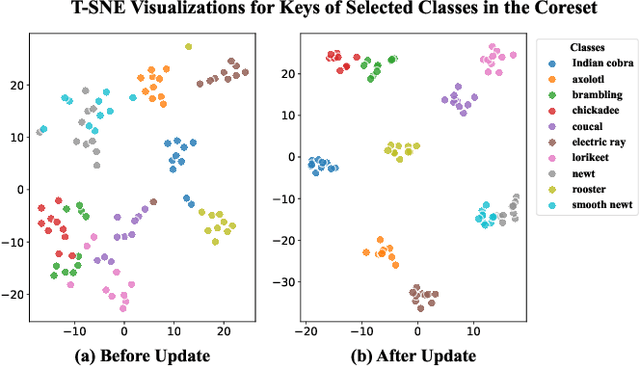Enhancing Multimodal In-Context Learning for Image Classification through Coreset Optimization
Paper and Code
Apr 19, 2025



In-context learning (ICL) enables Large Vision-Language Models (LVLMs) to adapt to new tasks without parameter updates, using a few demonstrations from a large support set. However, selecting informative demonstrations leads to high computational and memory costs. While some methods explore selecting a small and representative coreset in the text classification, evaluating all support set samples remains costly, and discarded samples lead to unnecessary information loss. These methods may also be less effective for image classification due to differences in feature spaces. Given these limitations, we propose Key-based Coreset Optimization (KeCO), a novel framework that leverages untapped data to construct a compact and informative coreset. We introduce visual features as keys within the coreset, which serve as the anchor for identifying samples to be updated through different selection strategies. By leveraging untapped samples from the support set, we update the keys of selected coreset samples, enabling the randomly initialized coreset to evolve into a more informative coreset under low computational cost. Through extensive experiments on coarse-grained and fine-grained image classification benchmarks, we demonstrate that KeCO effectively enhances ICL performance for image classification task, achieving an average improvement of more than 20\%. Notably, we evaluate KeCO under a simulated online scenario, and the strong performance in this scenario highlights the practical value of our framework for resource-constrained real-world scenarios.
 Add to Chrome
Add to Chrome Add to Firefox
Add to Firefox Add to Edge
Add to Edge